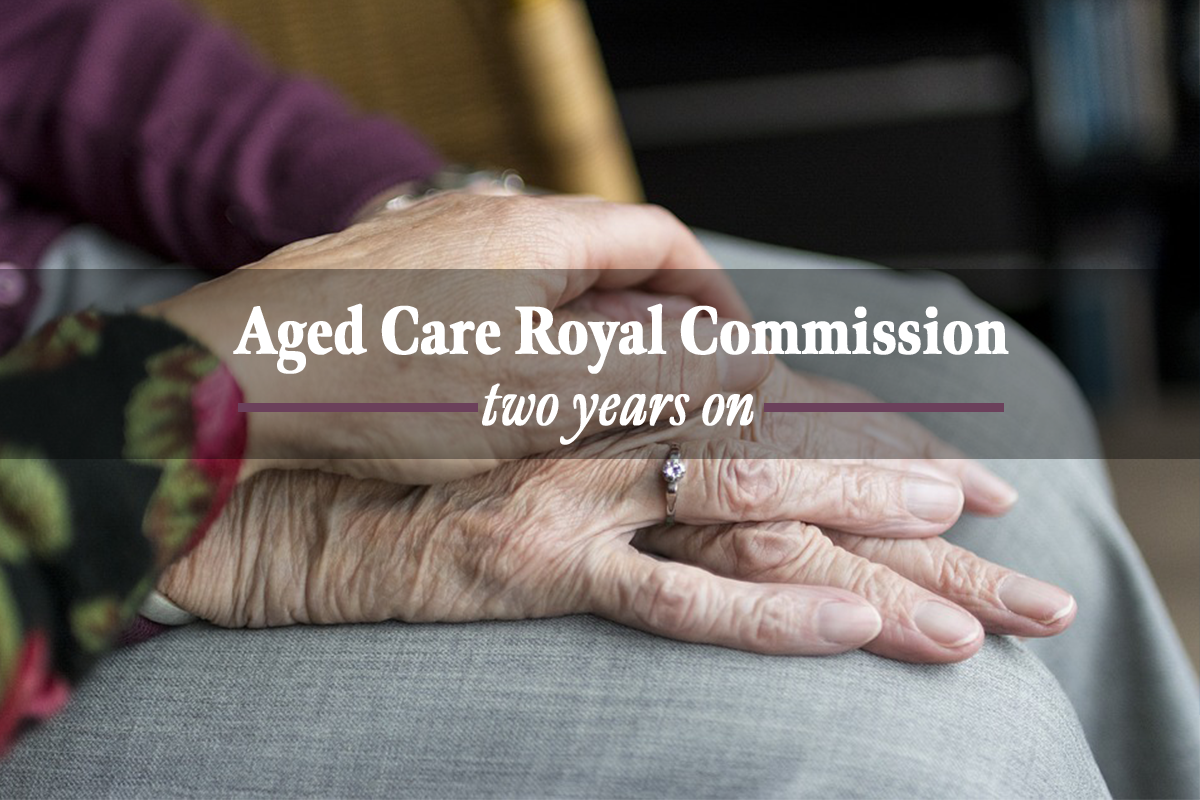
More than 1440 ANMF (Vic Branch) members working in residential aged care have answered our survey that will help inform our submissions to the Royal Commission into Aged Care Quality and Safety.
The responses also provide crucial information in support of the ANMF’s national campaign for staffing ratios in aged care and informing the ANMF’s position on administration of medications in this sector under Victorian drugs and poisons law.
Asked what had happened in the preceding week because of insufficient staffing or lack of time:
- over 60 per cent said a resident’s medication had been missed, early or late
- 45 per cent said a resident’s wound care was missed
- more than 40 per cent could not sit with a dying resident
- 37 per cent said a resident had been left in pain for too long
- 57 per cent said that someone had waited longer than half an hour to be assisted
- nearly a third said a resident had been injured by another resident’s aggression
- 38 per cent said a nurse or carer had been injured in the past week by a resident’s aggression.
Asked if any residents had been transferred to hospital for any reason:
- over 95 per cent said ‘falls’
- 64 per cent said ‘respiratory tract infections’
- 58 per cent said ‘urinary tract infections’
- 55 per cent said ‘behaviour management’.
Eighty per cent of respondents said better staffing ratios could have prevented some of these hospital transfers.
Nearly 40 per cent of respondents were registered nurses, with about the same percentage being enrolled nurses. Twenty-one per cent were personal care workers.
About half are working in private aged care facilities, with more than one-third working at not-for-profit providers.
Respondents reported that registered nurses were responsible for the care of 50-100 residents on 41 per cent of morning shifts, 48 per cent of afternoon shifts, and 46 per cent of night shifts. Twenty-eight per cent said registered nurses were responsible for 100-150 residents at night.
Forty-two per cent of respondents said nursing and personal care hours had reduced many times in the past two years, with 30 per cent saying they are rarely consulted about these changes and 23 per cent saying they are never consulted.
Members’ comments describe a crisis in aged care:
‘…often care and nursing staff run late or end up missing really important things due to inadequate staffing. More often than not, it’s reported to me from the regular staff that they have raised the issue with management only to have more and more hours cut.’
‘Fatigue and frustration and distress of staff who care about the residents but cannot deliver the care the residents need due to poor staff levels. We are constantly told we are ‘over staffed ‘ compared to other facilities. And RN hours have been cut without proper consultation.’
‘People don’t understand the amount of work aged care nurses face every single day; all they see is us trying our best (and too often, failing) to give the required care – or at least the care that we desperately want to give – to their loved ones.
‘I have grave concerns for the industry that I have devoted my working life to. Resident care is compromised on a regular basis due to reduced staffing.’
Members concerned about staffing levels and skill mix at their aged care facility are advised to first address concerns with their facility manager and if not satisfied with actions taken, make a complaint to the Aged Care Quality and Safety Commission, and seek ANMF advice.
ANMF Federal Secretary Annie Butler addressed the royal commission on 13 February. She said instances of inadequate care reflected systemic problems in the structure of the aged care system.
Read the ANMF’s media release about the
Read the media release about Ms Butler’s evidence to the royal commission.




